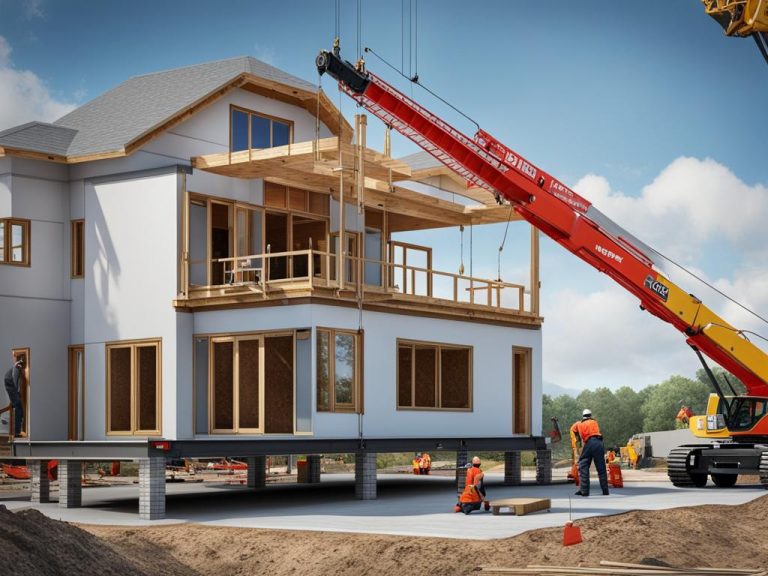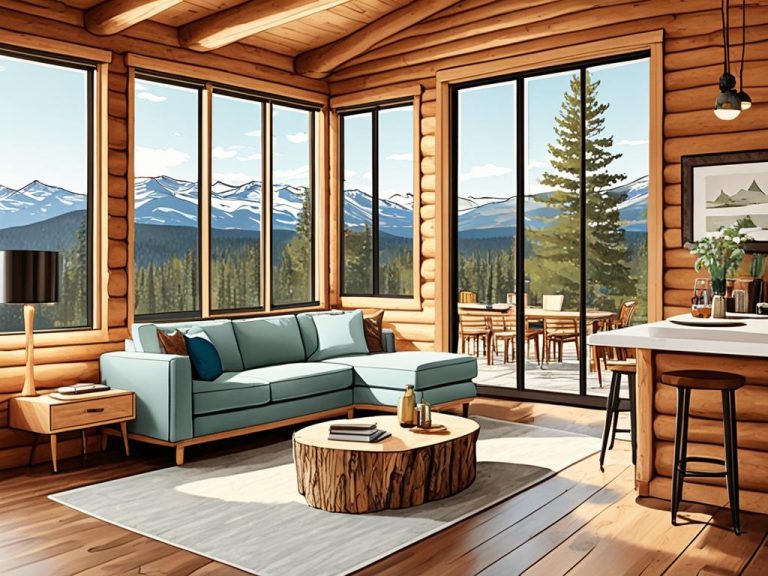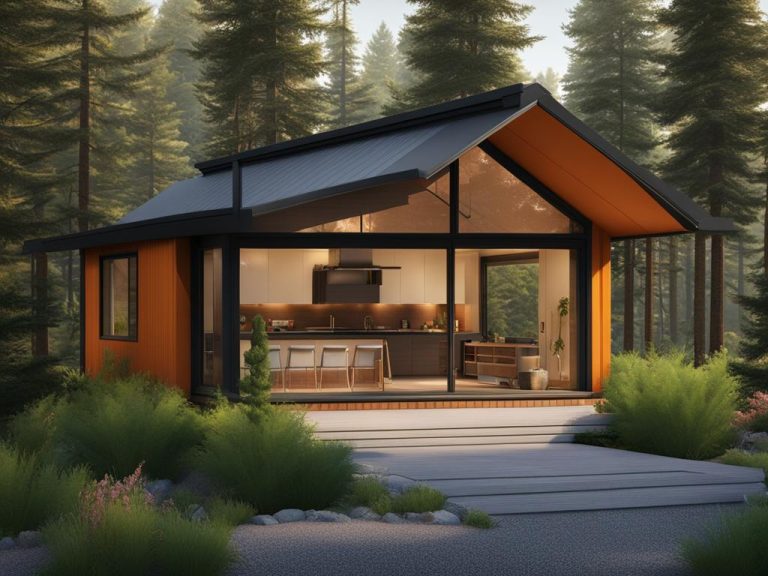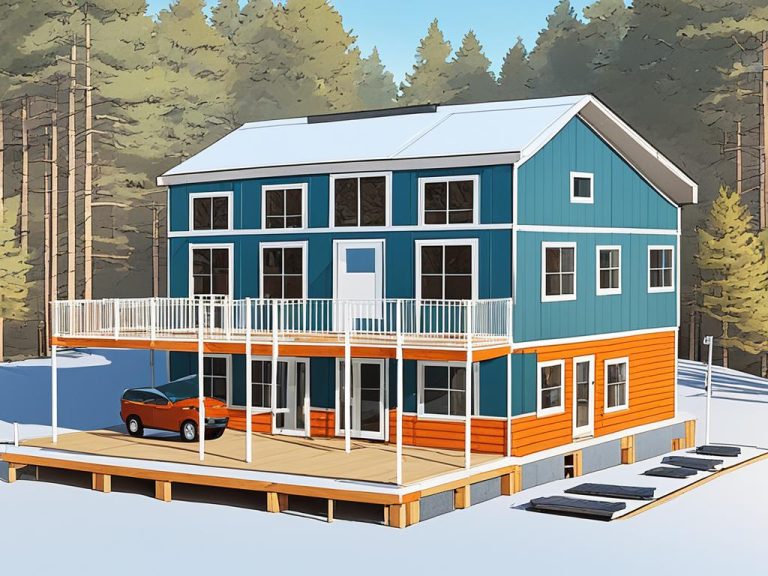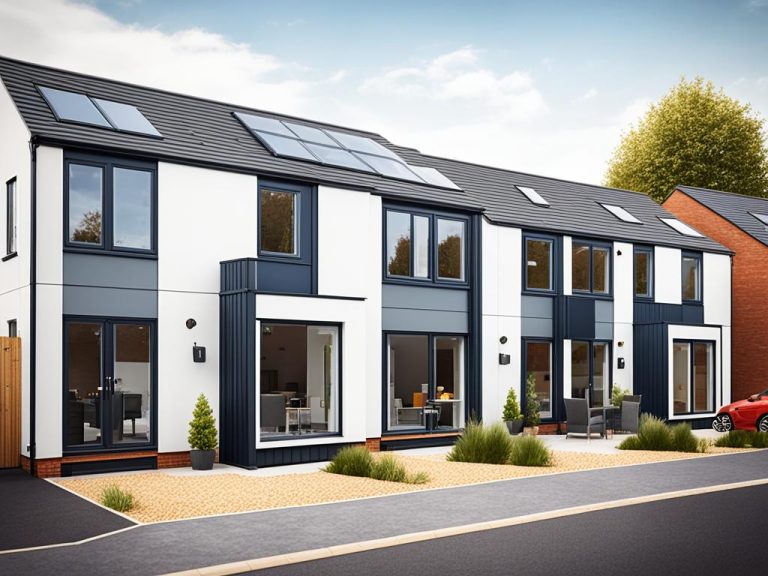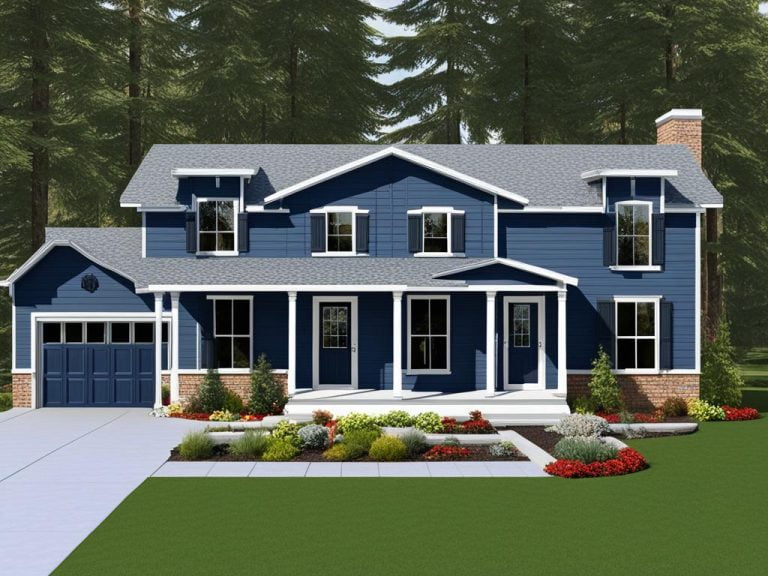Modular Homes are built to What Building Requirements?
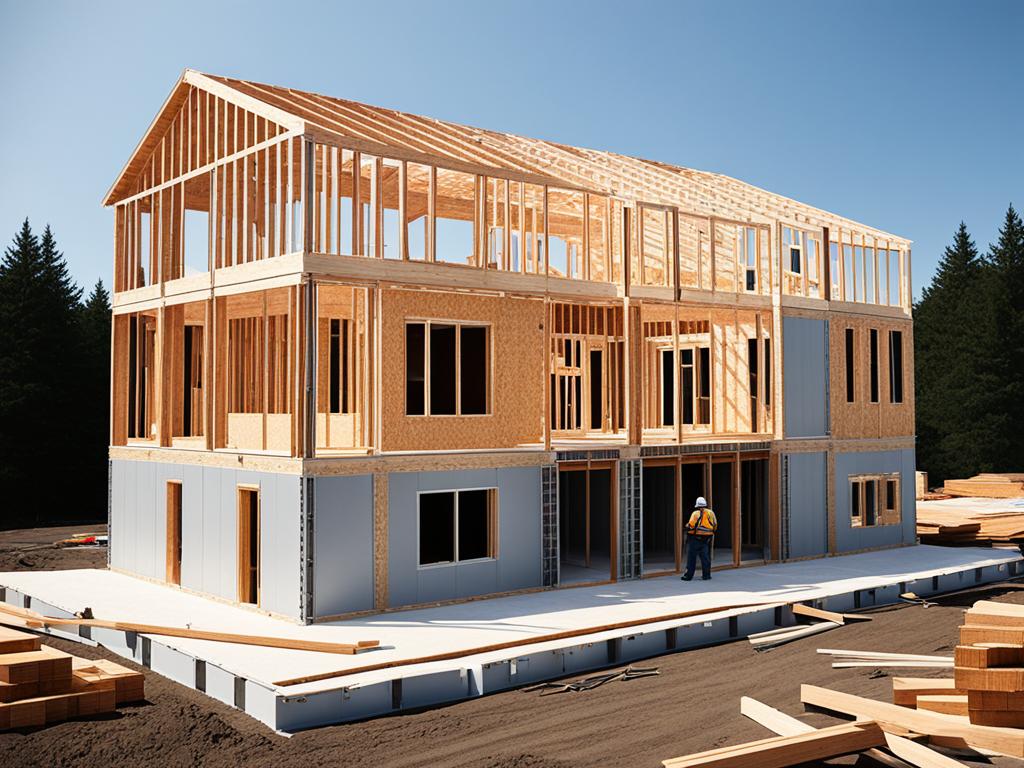
Modular homes are becoming an increasingly popular choice for those seeking affordable and customizable housing options. But what building requirements do modular homes need to meet? In this article, we will explore the specific requirements and construction standards that modular homes must adhere to in order to ensure safety, quality, and compliance with building codes.
Modular homes must be designed and constructed in accordance with the International Building Code (IBC), which sets the standards for federal, commercial, and state-building levels. These codes cover various aspects such as structural design, fire and smoke protection, moisture resistance, life safety measures, accessibility, mechanical, electrical, and plumbing systems, and waste disposal.
Throughout the manufacturing process, modular homes undergo evaluation, inspections, and compliance checks to ensure they meet the building code specifications. This rigorous process guarantees that modular homes are built to the highest standards and provide a safe and reliable living environment for homeowners.
Key Takeaways
- Modular homes are constructed to comply with the International Building Code (IBC).
- They must meet specific requirements in areas such as structural design, fire and smoke protection, moisture resistance, life safety measures, accessibility, mechanical, electrical and plumbing systems, and waste disposal.
- Modular homes must undergo evaluation, inspections, and compliance checks throughout the manufacturing process to ensure they meet building code specifications.
- Adhering to building requirements guarantees the safety and quality of modular homes.
- Modular homes provide a cost-effective and customizable housing option.
Compliance with Building Standards and Regulations
Modular homes, like any other construction activity, must comply with applicable building standards and regulations. It is crucial to ensure that these homes meet the necessary requirements to guarantee their safety and quality.
One of the key aspects of compliance is using an approved Building Control Service. This service oversees and inspects modular homes at various stages during the manufacturing process and on-site assembly. These inspections aim to ensure that the homes adhere to building codes and regulations governing structural design, fire protection, moisture resistance, life safety measures, accessibility, and waste disposal.
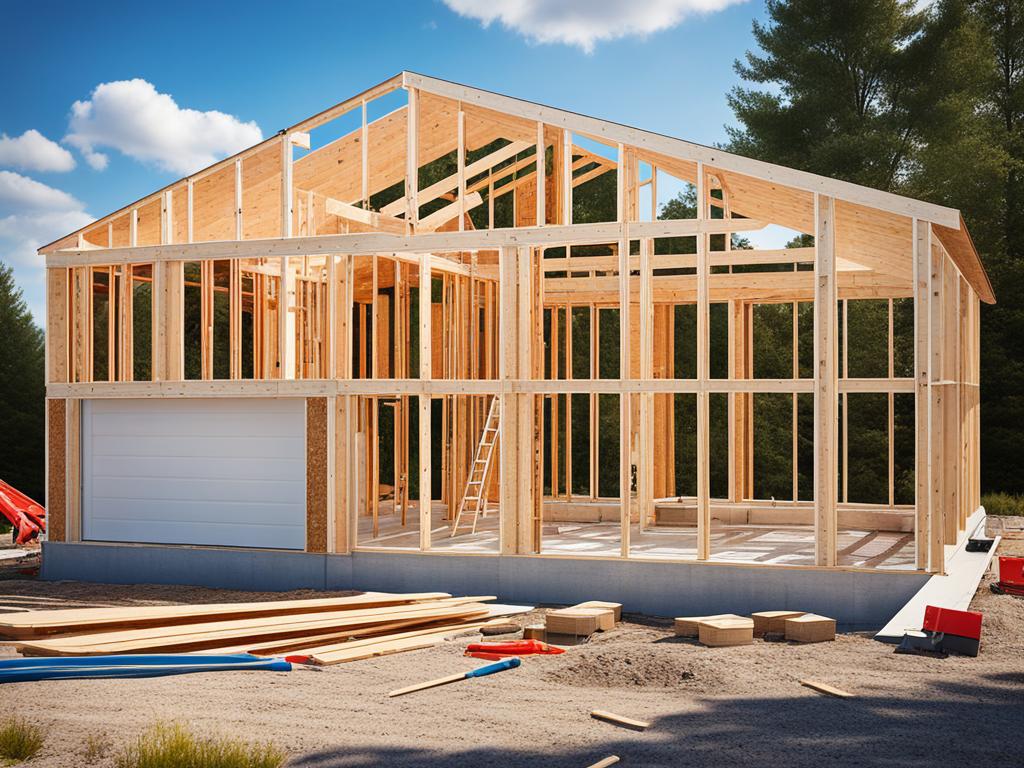
Modular homes must meet the specific standards outlined in the building regulations. These regulations establish the guidelines for constructing safe and habitable structures. Compliance involves adhering to the requirements set forth for each part of the building, including its structural integrity, fire safety features, moisture resistance, and waste management.
Inspections and evaluations play a crucial role in ensuring compliance with building codes. These inspections take place at multiple stages, including during the manufacturing process and on-site assembly. By conducting thorough inspections, any potential issues or deviations from the building codes can be identified and rectified promptly.
Complying with building standards and regulations is essential not only to ensure the safety and quality of modular homes but also to meet legal and regulatory requirements. It ensures that these homes are built to the highest standards and delivers peace of mind to homeowners, knowing that their investment meets all the necessary building codes and regulations.
Building Rules vs Planning Permission
When it comes to constructing a modular home, there are two key factors to consider: building rules and planning permission. Both play a crucial role in ensuring that your modular home meets the necessary regulations and standards while also adhering to the local planning process.
Building rules encompass a set of codes and standards that dictate the design and construction of all structures, including modular homes. These rules ensure that your home is built to approved standards in areas such as structural integrity, fire safety, accessibility, and waste disposal. A modular home must comply with these building regulations to ensure it meets the required specifications and quality standards.
Planning permission, on the other hand, focuses on the development of cities and towns, taking into account factors such as appearance and impact on the local area. Obtaining planning permission is essential for the design and location of your modular home, ensuring that it fits seamlessly within the existing landscape and meets the requirements set forth by the local authorities.
It is important to note that modular homes must comply with both building rules and planning permission requirements. This means that while your home may meet the necessary building regulations, it still needs the approval of the local planning authority. By obtaining planning permission, you can ensure that your modular home is not only built to the highest standards but also meets the aesthetic and environmental considerations of the surrounding area.
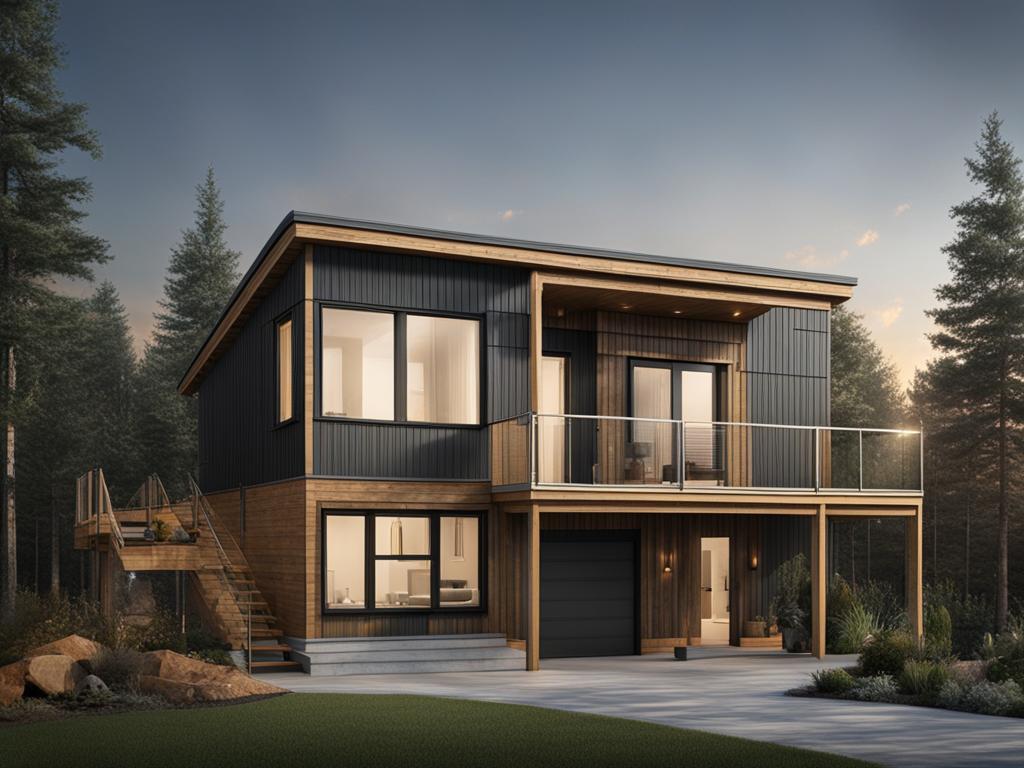
Whether it’s adhering to building rules or obtaining planning permission, both processes are integral to the successful construction of a modular home. By following these regulations and guidelines, you can ensure that your home is not only structurally sound but also fits seamlessly into its surroundings.
Exemptions and Application Process for Modular Homes
In order to ensure compliance with building regulations, modular homes are generally required to meet specific standards. However, there are certain exemptions that can apply in certain cases based on various factors such as size, energy demand, and temporary usage. These exemptions provide some flexibility for homeowners and developers when it comes to the construction and use of modular homes.
One of the primary regulations governing modular and portable buildings is regulation 21 of the building codes. According to this regulation, these types of structures are typically limited to a maximum size of 50 square meters. Additionally, modular homes that have a low energy demand and are not heated are also eligible for exemptions.
Another key factor in determining exemptions for modular homes is the temporary usage on a single site. These structures are usually allowed for temporary use for a duration of up to two years on a single site before stricter regulations and requirements may come into play. This provides an opportunity for individuals or businesses who require temporary housing or structures for specific purposes.
The application process for modular homes involves several stages, including evaluation, approval, and inspections. These processes are in place to ensure that the modular homes meet the necessary building codes and regulations. The evaluation phase typically includes a review of the design plans, materials, and structural specifications of the modular home.
Once the evaluation is complete and the modular home design is deemed compliant with building codes, approval is granted to proceed with the construction process. Inspections are conducted at various stages of the construction process, including before delivery and after assembly, to verify that all building codes and regulations are met.
Overall, the exemptions and application process for modular homes play a crucial role in ensuring that these structures meet the necessary standards while also providing some flexibility for homeowners and developers. By adhering to the established building codes and regulations, modular homes can offer a reliable and efficient housing solution for a wide range of needs.
Benefits and Considerations of Modular Homes
Modular homes offer a range of advantages that make them an attractive option for homeowners. One of the key benefits is their cost-effectiveness. Compared to traditional site-built homes, modular homes generally cost less to construct. This is because they are factory-built in a controlled environment, which reduces material waste and labor costs.
Energy efficiency is another advantage of modular homes. With advancements in building technology, modular homes can be designed to maximize energy efficiency. From insulation to solar panels, homeowners can customize their modular homes with energy-saving features that help reduce utility bills and decrease their environmental impact.
Customization options are also a significant benefit of modular homes. Homeowners can work closely with builders to select the desired floor plan, finishes, fixtures, and even architectural styles. Whether it’s a modern design or a traditional look, modular homes offer flexibility in creating a personalized living space.
Speed of construction is yet another advantage of modular homes. Since modular homes are constructed in a factory setting, weather delays are minimized, leading to faster completion times. This can be a significant advantage for those who need a home quickly or have strict time limitations.
In terms of quality, modular homes are built to meet stringent standards. The controlled factory environment allows for precise construction and strict quality control measures. This results in well-built homes that have the same durability and structural integrity as traditional homes.
Considerations
While modular homes offer various benefits, there are factors worth considering before making a decision. Additional costs may arise for plumbing and electrical installations, as these require connections between modules. Transportation costs should also be taken into account if the modules need to be transported from the factory to the building site.
Furthermore, upfront payments to builders are typically required when building a modular home. It’s important to carefully review contracts and financing options to ensure all costs and payment terms are clearly understood.
Last but not least, modular homes require a piece of land on which to be constructed. Therefore, owning land or purchasing a suitable plot is a prerequisite for building a modular home.
In summary, modular homes offer numerous benefits, including cost-effectiveness, energy efficiency, customization options, faster construction time, and high-quality construction. However, it’s essential to consider additional costs, transportation logistics, upfront payments, and land ownership as part of the decision-making process.
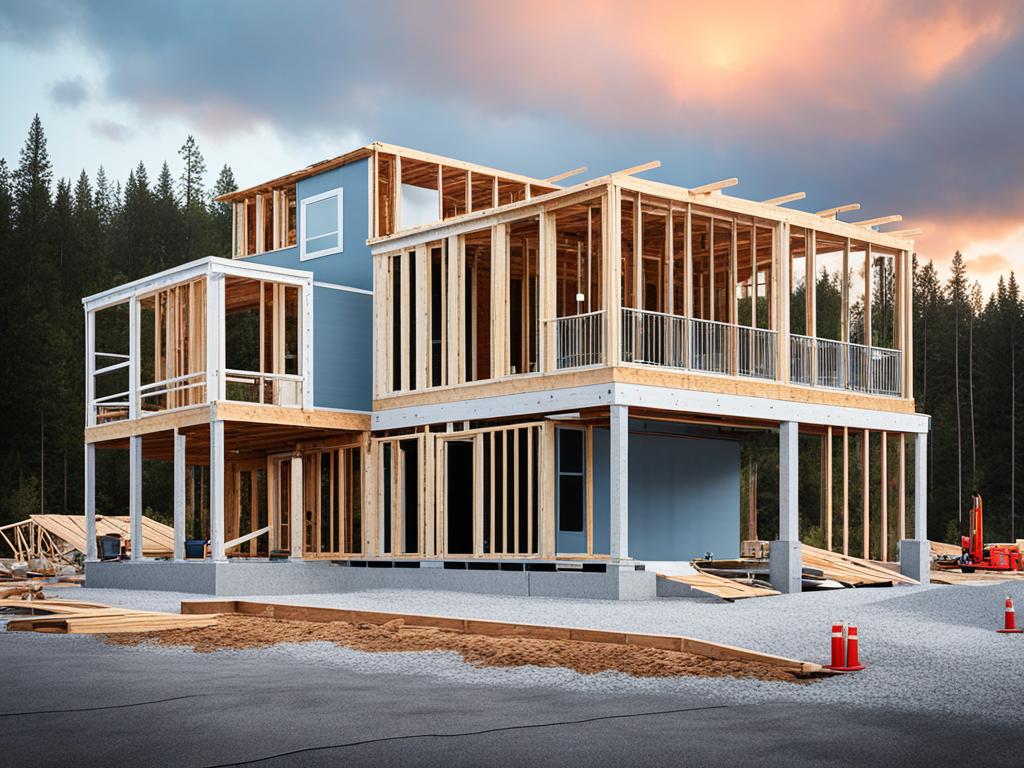
Conclusion
In conclusion, modular homes are built to meet stringent building requirements and codes, ensuring their quality and durability. These homes are constructed to comply with the International Building Code (IBC) and must undergo evaluation, inspections, and compliance checks throughout the manufacturing process. Modular homes offer a range of benefits, making them an attractive option for homeowners.
One of the key advantages of modular homes is their cost-effectiveness. Compared to traditional site-built homes, modular homes tend to be more affordable due to their streamlined manufacturing process and efficient use of materials. Additionally, modular homes are known for their energy efficiency, as they can be customised with energy-saving features that help reduce utility bills and environmental impact.
Another benefit of modular homes is their customization options. Homeowners can choose from a variety of designs, layouts, and finishes to create a home that reflects their personal style and preferences. Additionally, modular homes are built with speed in mind. Since they are constructed off-site in a controlled environment, the construction time is significantly reduced, allowing homeowners to move in sooner.
However, it’s important for potential modular home buyers to consider certain factors. Additional costs may arise for plumbing and electrical installations, and transportation logistics should be taken into account. Proper planning and permissions are also necessary to ensure compliance with local building regulations and obtain the required approvals. Overall, modular homes provide a viable and reliable alternative to traditional site-built homes, meeting building standards and providing comfortable, customizable living spaces.
FAQ
What building requirements do modular homes need to meet?
Modular homes are built to comply with specific requirements in areas such as structural design, fire and smoke protection, moisture resistance, life safety measures, accessibility, mechanical/electrical/plumbing systems, and waste disposal. They must also undergo evaluation, inspections, and compliance checks throughout the manufacturing process to ensure they meet building code specifications.
Do modular homes need to comply with building standards and regulations?
Yes, modular homes, like any other construction activity, must comply with applicable building standards and regulations. This includes using an approved Building Control Service and ensuring the work meets the requirements of each specific part of the building regulations, including structural design, fire protection, moisture resistance, life safety measures, accessibility, and waste disposal. Inspections and evaluations are conducted at various stages to ensure compliance with building codes.
What is the difference between building rules and planning permission for modular homes?
Building rules set the codes and standards for the design and construction of structures, including modular homes, to ensure they meet approved standards. Planning permission, on the other hand, guides the development of cities and towns, considering factors like appearance and local impact. Modular homes must comply with both building rules and obtain planning permission for their design and location.
Are there any exemptions for modular homes under building regulations?
Yes, under regulation 21 of the building codes, modular and portable buildings are exempted based on size, energy demand, and temporary usage. They are limited to 50 square meters, low energy demand (not heated), and temporary usage on a single site for no more than two years. The application process for modular homes involves evaluation, approval, and inspections at various stages.
What are the benefits and considerations of modular homes?
Modular homes offer benefits such as cost-effectiveness, energy efficiency, customization options, faster construction time, and high-quality construction. They can be designed to meet specific needs, utilize energy-saving features, and provide potential long-term cost savings. However, considerations include additional costs for plumbing and electrical installations, transportation logistics, upfront payments to builders, and the need to own the land for construction.

